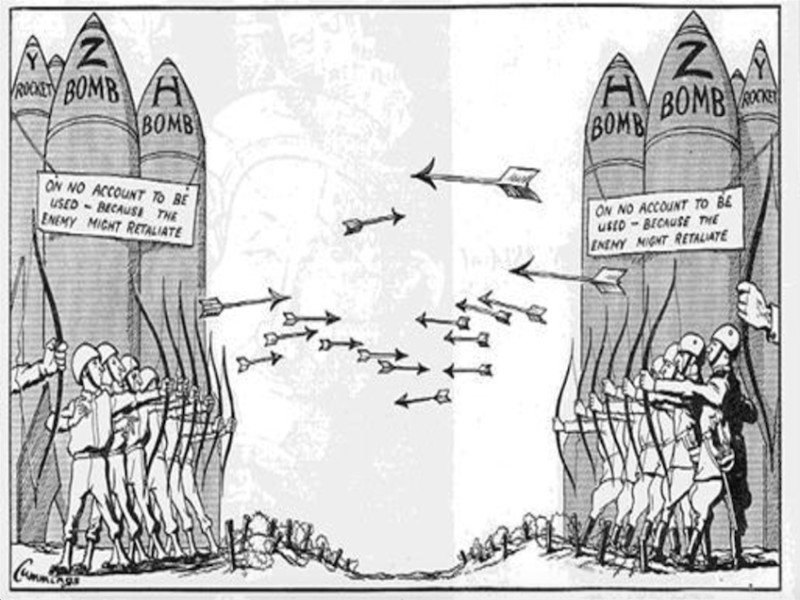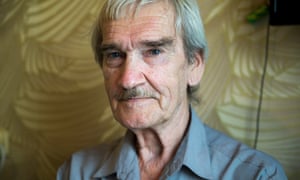
On September 26, 1983, Petrov was overseeing the command center when a radar screen showed that five minutemen intercontinental ballistic missiles had been launched by the US towards the Soviet Union. "The siren howled, but I just sat there for a few seconds, staring at the big, back-lit, red screen with the word 'launch' on it," he said, recalling the incident. The Red Army protocol would have been to order a retaliatory strike. However, he went with his gut instinct that something wasn't right, and called it a computer malfunction instead of an actual American strike. Later that day, he knew his instinct was right since no missiles actually came to the Soviet Union.
Petrov was never honored by the Soviet Authorities for his actions. However, his story became wildly known when the retired commander of Soviet missile defense published his memoirs. This lead to Petrov achieving worldwide recognition over the next few years for his actions. He was honored by the Association of World Citizens ad the UN headquarters in 2006 as "the man who averted a nuclear war," and he was awarded the prestigious Dresden Peace prize in 2013.

Sources:
https://www.theguardian.com/world/2017/sep/18/soviet-officer-who-averted-cold-war-nuclear-disaster-dies-aged-77
https://www.npr.org/sections/thetwo-way/2017/09/18/551792129/stanislav-petrov-the-man-who-saved-the-world-dies-at-77
http://www.nuclearfiles.org/menu/key-issues/nuclear-weapons/history/cold-war/strategy/strategy-mutual-assured-destruction.htm
Ryan, I really liked your post about Stanislav Petrov because I admire Petrov for not starting a nuclear war. I was curious as to what caused the false alarm so I did some more research using the source https://www.nytimes.com/2017/09/18/world/europe/stanislav-petrov-nuclear-war-dead.html. I found out that the false alarm was caused by the satellite mistaking the sun shining off clouds as a nuclear missile. Petrov did not just guess that it was a false alarm. He reasoned that if the US was attacking they would not send only 5 missiles but would send a lot more. This shows that Petrov really was a hero.
ReplyDeleteRyan -- This was a very good post because it looked at an unknown hero who has lived in the shadows for years despite the great feat he accomplished. It amazes me that we didn't recognize his prevention of perhaps one of the most devastating wars which was most likely to do with the fact that he was from the opposing side. He reminded me of Alan Turing, the man who cracked the German code during World War II, essentially winning it for the allies. He was frankly a genius but his accomplishments and his name became completely separated from one another because he was gay. He died sadly and it is depressing to see how a great man and his names were lost in history. Unfortunately, this is the truth and sometimes those who made the biggest change never achieve the recognition they deserve.
ReplyDeleteSource:
http://www.turing.org.uk/publications/dnb.html
This was a great post, Ryan! I think that the story of Stanislav Petrov really highlights the pitfalls of mutually assured destruction. It really goes to show how easily a slight malfunction in technology could lead to the end of the world. It's especially surprising that Petrov wouldn't respond to the threat of imminent nuclear attack when considering that both sides had been told over and over about the necessity of responding to any nuclear attack with full-blown nuclear war.
ReplyDeleteThis is such a fascinating post! I never knew about Stanislav Petrov, despite the fact that he had an absolutely essential role in both the United States and the Soviet Union surviving past 1983. The story of how crucial of a role Petrov played in the outcome of the Cold War yet how little recognition his name generally has today made me wonder what other people, from either of the superpowers involved in the Cold War, took important measures during the Cold War in attempts to keep their countries safe but never became very famous. I learned that there is a memorial in Nevada dedicated to "the unknown and unheralded men and women of the Cold War military and intelligence services." I had not really thought very far beyond the more obvious figures in the Cold War before, even though there were actually so many people involved in certain decisions, some of which were like the one Petrov had to make in his position while others involved taking dangerous actions to try to help the country be victorious in the Cold War. The article below contains more information about the Silent Heroes of the Cold War National Memorial and how it came to be.
ReplyDeletehttps://www.atlasobscura.com/places/silent-heroes-of-the-cold-war-national-memorial
Wow, this was a really interesting post. It's strange how many unknown heroes there are in history. Stanislav Petrov did something amazing that probably saved millions of lives, yet many have never heard of him. It's funny how some of the people we choose to remember in history aren't actually as heroic as they might have actually been. An example of this was JFK, he didn't do something super significant during his Presidency, (excluding the Cuban Missile Crisis) but even today, the Kennedy name is revered.
ReplyDelete